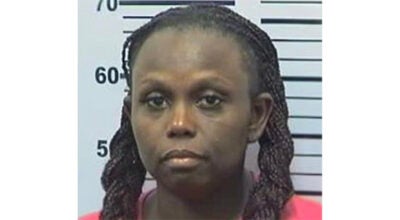Alabama residents get prison time, must repay millions as punishment for medical fraud crimes
Published 11:05 am Friday, March 22, 2024
An Alabama medical sales representative and an Alabama pain clinic owner were sentenced Thursday for their roles in health care fraud conspiracies that cost insurers millions of dollars. U.S. Attorney Prim F. Escalona, FBI Special Agent in Charge Carlton L. Peeples, and Special Agent in Charge Tamela Miles of the Department of Health and Human Service Office of the Inspector General (HHS-OIG) Atlanta Region made the announcement.
U.S. District Court Judge L. Scott Coogler sentenced James Ewing Ray, 53, of Gadsden, to 40 months for conspiracy to commit health care fraud. Ray was ordered to forfeit more than $850,000 and to pay restitution to victims of more than $5.3 million. According to Ray’s plea agreement, Ray was a sales representative who marketed to doctors’ offices various health care products and services, including topical prescription creams from specialty pharmacies, durable medical equipment (DME), and electro-diagnostic testing. Ray was paid fees for the prescriptions, DME, and tests he generated from doctors.
From at least 2012 through 2018, Ray conspired to pay and receive kickbacks to induce medical providers to issue medically unnecessary prescriptions and order medically unnecessary goods and services, which were then billed to Medicare and other health insurers. Among those services was nerve conduction testing provided by a Huntsville-based electro-diagnostic testing company called QBR or Diagnostic Referral Community. Ray received per-patient kickbacks from QBR for inducing medical providers to order tests from QBR. Medical providers received kickbacks from QBR too, disguised as hourly payments for the ordering physician’s time and staff’s time but in reality payments for every patient who got a test.
Judge Coogler sentenced David Lyle Shehi, 43, of Rainbow City, to 28 months for conspiracy to commit health care fraud. Shehi was also ordered to pay forfeiture and restitution to his victims. According to Shehi’s plea agreement, Shehi owned Etowah Pain, a pain clinic in Rainbow City, and was paid kickbacks in exchange for his practice’s ordering nerve conduction tests from QBR that would be billed to Medicare and other health insurance programs. Shehi also caused his practice to routinely bill health insurance programs for patient office visits using the code that would generate the highest reimbursement—even though that code was not appropriate and Shehi was warned that billing in this way was not allowed.
The FBI and HHS-OIG investigated the case, and Assistant U.S. Attorneys J.B. Ward and Don Long are prosecuting it.





